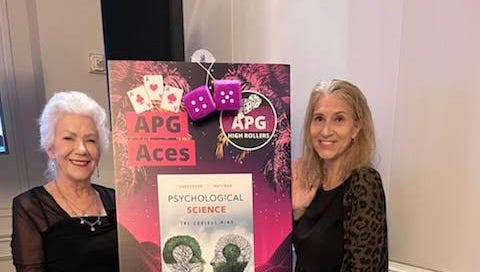In 2002, I signed a contract to write my first major textbook, and received a pretty sizable advance to do so. My editor took me and my husband out for a lovely dinner in New York City to celebrate, and then asked me if I had any particular plans for how I would spend the advance.
“We’re going to spend it all on take out food,” I replied quickly. And I wasn’t joking.
At the time we had two small kids, so every night we stared down the challenge of supervising baths, changing diapers, and reading Sam and the Firefly aloud. Simply contemplating the multiple steps involved in cooking dinner - making a grocery list, shopping, preparing the food, cleaning the kitchen - felt exhausting.
We therefore mostly did spend that advance on take out - and it definitely improved our overall happiness and marital well-being.
And this finding that spending money to save time increases happiness is now well supported by findings from empirical research in psychology.
Researchers in one study asked thousands of Americans whether they would prefer to have more money or more time. As you might predict, most people (about 64%) chose more money. But people who chose more time reported higher levels of happiness, even when the researchers took into account how much time and money they already had (meaning these findings aren’t simply driven by wealthy people preferring to have more time).
The benefits of spending money to save time are seen across cultures, and in people from various socioeconomic backgrounds. For example, people who spend money on time-saving services - paying someone to mow their lawn or clean their house - report greater life satisfaction.
Here’s a simple example of how spending money that saves us time feels really good. In one study, people were given forty dollars on two consecutive weekends but were given strict instructions on how to spend the money.
One weekend people were told to spend the money on material purchases, such as books or clothes.
On the other weekend, people were told to spend the money on something that saved them time, such as taking a cab instead of walking or eating in a restaurant instead of cooking.
The researchers then asked people after each weekend to rate their overall level of stress and well-being. Can you predict what they found? Compared with the days in which they bought stuff, people felt happier and less stressed on the days in which they were told to spend the money in time-saving ways. (Which is precisely what my husband and I felt as we regularly ordered take out when our kids were little.)
The practical takeaways from this research are pretty clear: prioritizing time over money is a great way to increase happiness!
Now a couple questions for you: What’s your favorite way to spend money to buy time? And does doing so make you happy? Please share in the comments!





I admit it’s indulgent due to the additional cost but I often buy pre-cut fruit which my husband and I enjoy every morning as part of our continental breakfast. I also have eliminated many trips to the stores by ordering online. I truly value my time and much prefer an opportunity to read over tasks that I don’t enjoy.
I had never thought of this before...spending money to save time, but I see that I do it! My first thought is that I'd rather purchase certain things online and have them delivered to my door rather than endure traffic and have to go to several stores to find what I'm looking for (if I even find it). I will also sometimes go to a closer more expensive grocery store because I don't want to spend the extra time going to the less expensive one that's a bit further away. I had considered hiring someone to mow the lawn, but realized I really enjoy spending time in the yard and tending to the landscaping, which I suppose might indirectly relate to this research!